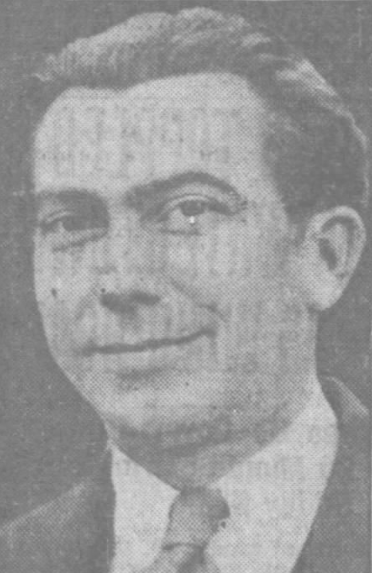 AP Photo, Honolulu Star-Bulletin, February 20, 1932 In 1929, a jury found Alvernon L. Lytle guilty of robbing a bank in Minden, Nebraska. In 1932, Lytle was exonerated and released based on another man's confession. The crime occurred on November 20, 1929. A man claiming to be armed with dynamite entered the Exchange National Bank in Minden, herded the bank president, Frank Kingsley, and three other persons into a vault, threatening to blow them up if they did not comply, and made off with $520. Nine days later, Lytle, a cook at a restaurant in the Nebraska town of Superior, was visiting relatives in Minden for the Thanksgiving holiday when Kingsley spotted him and identified him as the robber. Lytle went on trial before a jury and Kearney County District Court Judge Lewis H. Blackledge on December 19, 1929. The prosecution’s case rested on identification testimony by Kingsley and the other victim-witnesses. Lytle presented an alibi defense – four witnesses testified that at the time of the crime Lytle had been working in Superior, eighty miles from Minden – but the jury deliberated less than an hour on December 20 before returning a verdict of guilty. Judge Blackledge immediately sentenced Lytle, who had no prior criminal record and was married and the father of an eighteen-month-old son, to an indeterminate prison term of twelve to fifteen years. The Nebraska Supreme Court affirmed the conviction on November 21, 1930, saying only, “We have carefully examined the record and find the same to be free from prejudicial error.” On January 20, 1932, John Webster was arrested in Peoria, Illinois, and was subsequently charged with two Illinois bank robberies in which the perpetrator, as in the Minden crime, had used dynamite threats. After Webster confessed that he had committed the crime for which Lytle was in prison, a photograph of him was sent to Minden. When Kingsley, who had been the key witness against Lytle, was shown a photograph, he concluded that he and the other eyewitnesses had made a terrible mistake. Webster was shorter and heavier than Lytle and had considerably darker hair, but the two men otherwise resembled each other. At Kingsley’s behest, Nebraska Governor Charles W. Bryan issued a “temporary respite order,” releasing Lytle from prison on February 6, 1932. Seven days later, acting on a unanimous recommendation of the Nebraska Board of Pardons, Bryan pardoned Lytle, proclaiming him innocent. On March 12, 1932, Webster pleaded guilty to the Illinois robberies and was sentenced to twenty to forty years in prison. He was never charged with the Minden crime. Lytle and his family then moved to Lincoln, Nebraska, where he secured a job as a cook in a restaurant. Kingsley reimbursed Lytle $1,000 for his legal expenses. In 1933, the Nebraska Legislature awarded Lytle $2,500 in compensation for his wrongful conviction – $3.25 for each of 769 days he spent behind bars for a crime he did not commit. – Researched by Rob Warden |